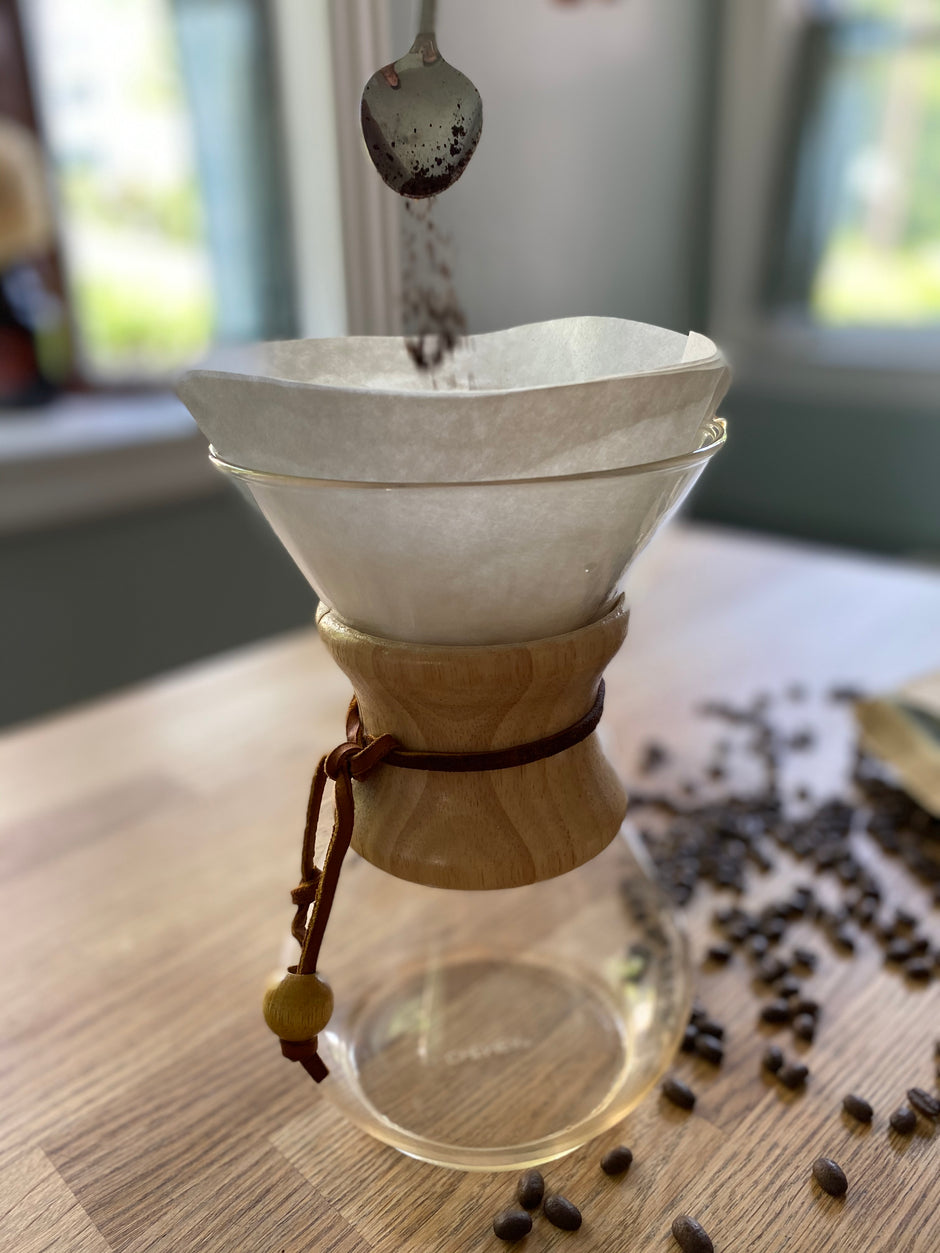What is Specialty Coffee?
By Tyler Workman

The phrase Specialty Coffee seems to be thrown around quite a lot these days, especially by those of us who work in the industry. I find myself using this phrase very frequently when I explain to people what sets Kaha apart. Every time the phrase Specialty Coffee is said, it is mostly met with with a blank stare.
Trying to define Specialty Coffee in one blog post is rather tricky, as it's not only a global topic that stretches right through the entire supply chain, but one that is evolving with each passing year. So for the sake of this blog post, I will keep it pretty light.
Typically when we say Specialty Coffee, we a drawing a comparison to Commodity grade coffee. Commodity grade coffee is usually untraceable with a very low price per pound being the main draw for any would be buyer. Many lots from many different farms are mixed together to form a huge amount of coffee, that can be purchased by the container load. The result is coffee that is only as good as the lowest quality coffee in the bunch. This coffee is usually sold through large chain coffee shops and on the shelves of large supermarkets - typically ground and with no roast date shown on the bag. Commodity grade coffee offers little financial incentive to producers to keep increasing quality.
Lets break it down into 4 key areas:
Cupping score (an entire Blog will be dedicated to this topic)
Cupping is the process of observing the taste and aroma of brewed coffee. This is typically done by a Q Grader who is certified to Specialty Coffee Association standards. The grading form can be found here. The coffee is scored based on its flavor, acidity, aroma, sweetness, aftertaste, body and uniformity. The system is based on a 100 point scale, which allows for very low scoring coffees all the way through to very high scoring coffees. Anything that scores above 80 points is regarded as Specialty Coffee.
Plant husbandry, lot separation and processing
Like any plant, the more attention that is paid to the soil to ensure the plant gets all the nutrients it needs, the healthier the plant. One of the focal point of any producer who grows specialty coffee is how frequently they tend to their crop. A healthy coffee tree will be able to grow far higher quality coffee. Farmers often measure the sugar inside the mucilage of the cherry before picking (measured in Brix). Generally speaking, the more sugar the better the resulting coffee will taste. Not all coffee varieties are created equal. Some will do much better depending on where they are located on the farm and what type of climate the country has. A farmer will often separate out its best producing coffee trees and process that lot separately from the others. This will not only be a value add for the farmer, but a chance to highlight what that farm is capable of under ideal conditions. Speaking of processing there will be a separate blog post on this topic soon. But to simplify it, there are three main approaches to processing coffee. Natural, Washed and Honey Processed. Each processing method can produce vastly different cup characteristics. Part of all Specialty Coffee is knowing what type of processing your particular coffee variety went through, so you understand why it tastes the way it does.
Traceability and supply chain care
One big proponent of Specialty Coffee is traceability. This means that the coffee should be able to be traced back to the farm where it was grown. This however is the bare minimum of what traceability means. There are varying degrees of traceability. In its purist form, traceability leads to complete transparently of each action taken throughout the supply chain. There is still a long way to go before this is easily accessible information for the consumer. However with new technology being developed, we have high hopes that this will be a reality this decade. When specialty coffee takes the trip for the country of origin to the coffee Roastery, there needs to be special care taken to the way it is packaged. We believe it is a bare minimum for all specialty coffee to be sealed in GrainPro bags, before being put inside the burlap sacks.
The Roaster, the Barista and You
This is the final frontier. Once the coffee gets to the Roaster or the Barista, it has touched many hands. Its is our duty to maintain the integrity of all the hard work that was put into the coffee before us. As a Roaster of Specialty Coffee, we take great care in how we roast and develop our profiles to ensure we are coaxing out the very best that coffee can offer. The same applies to the Barista. Each time that Barista pulls a shot, they are monitoring all the metrics they have available to ensure the coffee is being represented the best way possible. The last person and one of the most important is you! Please take a moment to enjoy your coffee and appreciate the hours of work and dedication it took for that coffee to arrive in your cup. And next time someone askes you why you are willing to pay a little bit more for your coffee, just send them over to this blog post :)
Please note - Not all aspects of specialty coffee were spoken about in this blog post. We will do our best to address more posts to these topics that were left out in the near future. Cheers!


0 comments